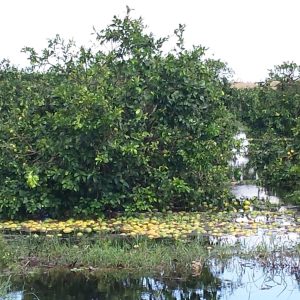
By Clint Thompson
Hurricane Debby’s recent trek through North Florida and South Georgia serves as a reminder about the dangers of floodwaters contacting fruits and vegetables in the field.
With the potential for additional storms over the next couple of months, growers are reminded that any crop that is on the ground and comes in contact with floodwaters cannot be harvested, says Morgan Madison, food safety and sustainability manager for the Florida Fruit and Vegetable Association.
“The food that’s on the ground, they’re not going to want to harvest if it’s come in contact with floodwaters. Luckily, right now, we don’t have a lot of growers with food in the ground. That was fortunate with the timing (of Debby),” Madison said. “If there are crops in the ground and if it does come in contact with floodwater the recommendation would be for no harvest.
“The floodwater could have chemicals. It could have contamination from other sources.”
Legislative Rules

According to Alabama Extension, all food crops that have been touched by floodwater, are considered adulterated by the Federal Food, Drug and Cosmetic Act and should not be used for consumption by humans or animals.
It is recommended that adulterated crops be disposed of in a manner that ensures they are separated from crops that have not been flood damaged to avoid adulterating clean crops.
One course of action may be to till in the soil once the field has been properly drained. The tilling process helps speed recovery of the soil for replanting.









